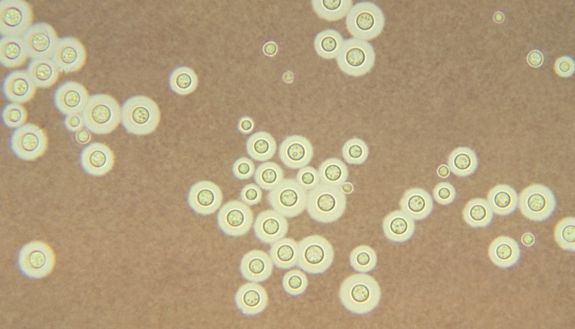Infectious Fungi Are Loving Global Warming
Climate change has the potential to make fungi even more hazardous to our health, according to research at Duke University. Asiya Gusa's climate change research focuses on how warming temperatures affect fungal diseases, particularly Cryptococcus. Her team found that higher temperatures increase the fungus’s mutation rate, helping it survive.
With more drug-resistant fungi emerging because of climate change and aging populations, Gusa emphasizes the urgent need for new antifungal treatments to prevent a potential fungal pandemic.
Gusa is assistant professor of molecular genetics and microbiology.
READ MORE ABOUT CLIMATE CHANGE AND HEALTH

This photomicrograph depicts Cryptococcus neoformans, a fungal pathogen that has been causing an increasing number of life-threatening infections. People with AIDS, and those using immunosuppressive drugs are most vulnerable. (US Centers for Disease Control)


September 10, 2024
Climate Change Is Bringing New Health Threats, and the School of Medicine Has a Strategy
Read